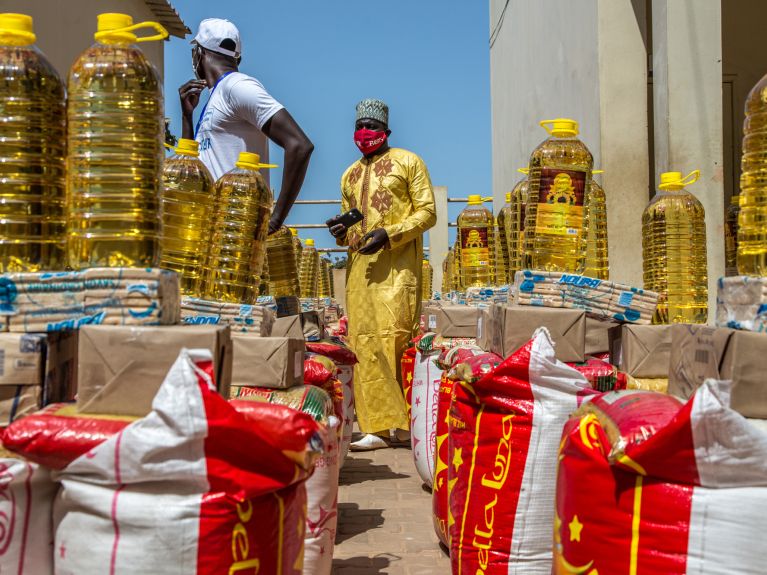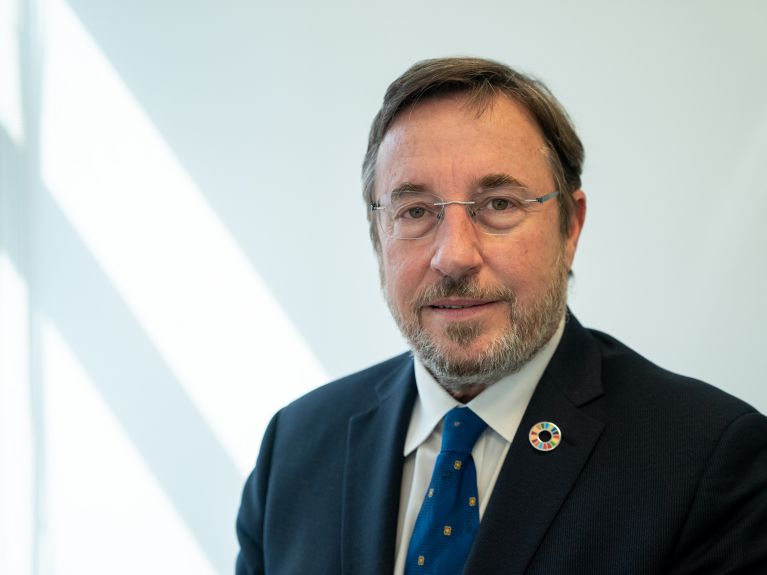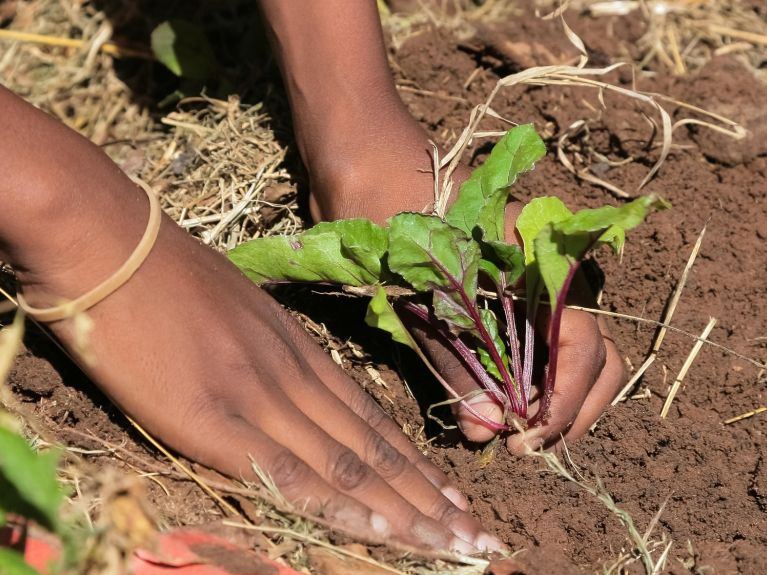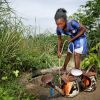Code red for humanity
The world is facing a food crisis – UN Under-Secretary-General Achim Steiner warns of the consequences for poor countries of the war against Ukraine

Mr. Steiner, we keep reading that the war in Ukraine is endangering global food security. Is that true?
The war in Ukraine is adding unprecedented pressure to the current food insecurity situation, turning it into a global food crisis: as two of the world’s breadbaskets, Russia and Ukraine provide around 30 percent of the wheat and barley we consume. The Food and Agriculture Organization latest food price index had already reached a record high in February 2022 before the war started, since then it has had some of the largest one month increases in its history, with its record high in March 2022. For millions of people around the world, particularly poorer households, this literally means that they cannot afford to buy what they were able to buy just yesterday. The war could increase the number of severely food-insecure people by 47 million people in 2022, bringing it to 323 million by the end of the year.
Is the war only exacerbating a situation that was already critical?
World hunger and malnutrition levels worsened dramatically due to the COVID-19 pandemic. According to the World Food Programme, in just two years, the number of severely food insecure people has doubled, from 135 million pre-pandemic to 276 million at the start of 2022. The climate emergency and conflict have been other significant drivers. For instance, over the past decade, 1.7 billion people have been affected by extreme weather and climate-related disasters. And while most countries have achieved significant gains in reducing hunger and malnutrition over the last 20 years, progress in most conflict-hit countries has stagnated or deteriorated.

Is the war only exacerbating a situation that was already critical?
World hunger and malnutrition levels worsened dramatically due to the COVID-19 pandemic. According to the World Food Programme, in just two years, the number of severely food insecure people has doubled, from 135 million pre-pandemic to 276 million at the start of 2022. The climate emergency and conflict have been other significant drivers. For instance, over the past decade, 1.7 billion people have been affected by extreme weather and climate-related disasters. And while most countries have achieved significant gains in reducing hunger and malnutrition over the last 20 years, progress in most conflict-hit countries has stagnated or deteriorated.
UNDP greatly appreciates Germany’s strong support
How do you think the situation will develop in the coming months?
At this point in time, it seems quite difficult to predict how things will evolve. But what is clear is that without bold multilateral action today hard-won development gains will be lost and major disruption to people’s lives and livelihoods will continue. Today, an estimated 94 countries — home to around 1.6 billion people — are severely exposed to at least one dimension of the crisis — finance, food and energy — and are unable to cope with it. And of those 1.6 billion people, three quarters of them live in ‘perfect-storm’ countries that are severely exposed and vulnerable to all three dimensions of finance, food, and energy, simultaneously.

Russia and Ukraine are considered to be breadbaskets from which the whole world is supplied. Is there really no alternative to becoming dependent on a few countries for global food supplies?
The G7 Development Ministers launch last May of the Global Alliance for Food Security, an initiative with strong German commitment, is an important step to find a concerted solution to the hunger crisis that is threatening the world. The aim now is to recruit other partners for the alliance in order to deliver a swift, effective and sustainable joint response. A related example is Germany’s initiative to set up a global shield against climate risks to provide protection before a crisis even arises – for example, via insurance or social protection systems. Much of this is in line with the work of UNDP and exemplifies just how much we share a common agenda. UNDP greatly appreciates Germany’s strong support on each of these fronts.
Code red for humanity
After all, the Ukraine War is not the only crisis threatening global food security right now.
We are at a critical moment, which the Secretary-General has aptly called “code red for humanity”. The latest research recognizes that despite adaptation efforts, human-induced climate change has caused widespread loss and damage to nature and people, with the most vulnerable people and systems disproportionately affected. For instance, there are exceptional, persistent droughts across the Horn of Africa, Central Asia and Central America, directly impacting food security in this region. This reaffirms that ambitious climate action is urgent and pivotal to bend the emissions curve and respond to impending impacts. And in this context, no country can act alone. We should accept that — in a world where climate change and viruses pay no heed to borders nor boundaries — we need to pay more attention to the security of our neighbours if we are to tackle the interconnected threats we now face.
Achim Steiner is a United Nations Under-Secretary-General and Administrator of the UN Development Programme UNDP.
You would like to receive regular information about Germany? Subscribe here:


